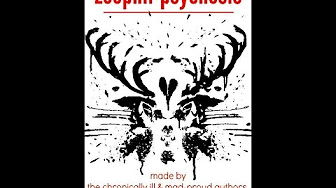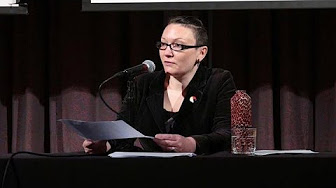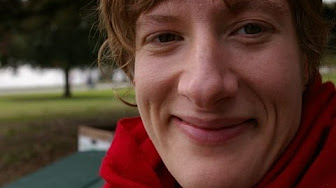Film
“CAN YOU DIG THIS” follows the inspirational journeys of four unlikely gardeners, discovering what happens when they put their hands in the soil. This is not a story of science and economics. This is a story of the human spirit, inspiring people everywhere to pick up their shovels and “plant some shit.”
.
Filmmaker Byron Hurt examines the soul-food tradition of black culture. Because soul food is often cooked with lots of fat, sugar and salt, it can lead to obesity and other health issues, as happened to Hurt’s father, who died at age 63 from pancreatic cancer. Along the way, he talks with soul-food cooks, historians, doctors, and everyday people; and details the socioeconomic conditions in predominantly black neighborhoods that can make it difficult for residents to find healthy food options.
.
 The Invisible Vegan (coming soon)
The Invisible Vegan (coming soon)
The Invisible Vegan is a 90-minute independent documentary that explores the problem of unhealthy dietary patterns in the African-American community, foregrounding the health and wellness possibilities enabled by plant-based vegan diets and lifestyle choices. Over the past three decades, coronary heart disease and diabetes have steadily grown as the leading causes of health problems in America, disproportionately impacting the African-American community in particular. This documentary offers both historical and contemporary perspectives on the dietary trends among African-Americans, showing how intertwined histories of slavery, twentieth-century socioeconomic inequalities, and the rise of Big Food have led to the increased consumption and dependence of meat, processed junk, and fast food. Starring Jasmine Leyva, Cedric the Entertainer, John Salley, Stic of Dead Prez and Tracye McQuirter.
.
Video
Pro:
- Video response to Stef Sanjati “why I’m not a vegan”
- RE : IS VEGANISM REQUIRED IN FEMINISM?
- On transgender women and Ngozi Adichie
.
.
.
- Re: “Why I’m not an intersectional/ social justice vegan” by Unnatural Vegan
- RE: “Dogmatic Justice vs. Morality/ Why I’m not an intersectional vegan” Unnatural Vegan
- VEGANISM IS CRUCIAL | Intersectional Justice
- Is Intersectionality A “Fringe Belief”??
- Veganism movement needs to be intersectional!
- Intersectionality Needs Veganism
.
- Unnatural Vegan Gets an “F” for Social Justice
- What is Intersectionality? Breaking through Activist Jargon
- Unnatural Vegan – The Miniseries
- Convertible: Ms. King Talks Intersectionality, Ethelene Crockett and Ben Carson
- What is Intersectionality? Breaking through Activist Jargon
.
.
.
.
.
- Black People won’t go Vegan
- You’re not Vegan if you do not care about Social Justice
- Vegan Gains and Unnatural Vegan are trolls: My 2 cents in 2 minutes
.
- UNNATURAL VEGAN AND INTERSECTIONALITY – MY RESPONSE // PLANT BASED BRIDE
- #SELFCARESATURDAY PREVENTING & RECOVERING FROM ACTIVIST BURNOUT // PLANT BASED BRIDE
- NON-HUMAN ANIMALS: Crash Course Philosophy RESPONSE // PLANT BASED BRIDE
.
- Why pro-intersectional veganism is important
- Intersectional Veganism isn’t enough.
- This book shattered my approach to vegan activism | Aphro-ism review
.
.
.
- Feminist Friendship | Dr. Cori Wong | TEDxCSU
- Real People. Real Abortions. – Cori Wong (2017)
- Live to Tell Another Not Rape Story and Be a Better Bystander
- Think for a Change (31): Abortion in Class
- Think for a Change (29): That’s Funny, You Don’t Look American
- Think for a Change (28): My Favorite F-Word
- Think for a Change (27): Majority Rule for Minorities
- Think for a Change (25): Truth Beyond the Status Quo
- Think for a Change (23): Prop 8, DOMA, Red for Marriage Equality
- Think for a Change (21): Myphilifesophy – Past, Present, Future
- Think for a Change (19): The Other Ethical Problem with the Penn State Sex Abuse Scandal
- Think for a Change (18): Being a Good, Straight, White Man
- Think for a Change (17): It’s Okay to Be Gay!
- Think for a Change (16): Re: White Teens Driving Over, Killing Black Man
- Think for a Change (15): Complex Human Interactions
- Think for a Change (13): Trouble for Old, Dead, White Guys
- Think for a Change (12): Re: Trans Woman Attacked at McDonald’s
- Think for a Change (11): Freedom to Think Differently, or At All
- Think for a Change (10): What We Don’t Know About Ignorance
- Think for a Change (9): RE: Asians in the UCLA Library
- Think for a Change (5): The Meaning of Life
- Think for a Change (4): Surviving Rape Scripts
- Think for a Change (3): Bedtime Story on Being Normal
- Think for a Change (1): Inspiring Role Models
.
.
.
.
- Brenda Sanders – A Comprehensive Intersectional Approach to Vegan Activism
- Pro-Intersectional Vegan Conference PREVIEW VLOG by A. Marie Houser
- Dr. Will Tuttle’s Intro to Pro Intersectional Vegan Conference
- Pro-Intersectional Vegan Conference 2016 recorded talks
- Dr. Richard Twine – How does intersectionality complicate vegan transition?
- Christopher Sebastian – Intersections of Justice: Building an Inclusive Animal Rights Movement
.
.
Ron Finley
.
Angela Davis
- Angela Davis on Veganism
.
.
- 365 Vegans Johanna Intersectionality
- Rap Attack Vegan Hip Hopper – Not being an Australian, Messages in Hip Hop, Intersectionality
.
The Advocacy of Veganism Society
.
.
.
.
.
.
.
Anti
- Why I’m not an intersectional/social justice vegan
- Intersectionality Followups (digging myself in deeper?)
- Dogmatic Justice vs. Morality, Animal Experimentation, etc. (Intersectionality followup 1 of 3)
- Alienation and the importance of focused activism (Intersectionality followup 2 of 3)
.
- Veganism is NOT a Social Justice Movement.
- Critique of Earthling Ed: Vegans can’t offer “Social Justice” for animals.
- Zoopolis: a NON-VEGAN Political Theory of Animal Rights
- Jordan Peterson says Veganism is a Religion without a Philosophy.
.
.
.
.
.
.
.
.
On the fence:
.
.
.
Books
Anarchism and Animal Liberation; Essays on Complementary Elements of Total Liberation:
- ‘Nailing Descartes to the wall’: Animal Rights, Veganism and Punk Culture,”
- Contemporary Anarchism, Animal Liberation and the Implications of New Philosophy
- Disturbing Places of Inter-Species Violence That Are Hidden in Plain Sight
- The Sexual Politics of Meat: A Feminist-Vegetarian Critical Theory
- A Rational Approach to Animal Rights: Extensions in Abolitionist Theory
- Sistah Vegan: Black Female Vegans Speak on Food, Identity, Health and Society
- Ecofeminism: Feminist Intersections with Other Animals and the Earth
Donaldson and Kymlica:
- Zoopolis
Gary Francione
- Animal Rights: The Abolitionist Approach
.
Essays:
Cori Wong:
Benjamin Franks:
Wilfred Sellars:
Singh Jakeet:
Martha Nussbaum:
Donaldson and Kymlica:
- Re: Farmed Animal Sanctuaries: The Heart of the Movement?
- Between the Species; An Interview
- Solidarity in diverse societies
- Afterword: Realigning Multiculturalism and Animal Rights
Christopher Sebastian McJetters.
.
Quotes & Summaries
Cori Wong: Feminist Friendships
Feminism is hard and complicated—doing good feminist work and doing work to be a good feminist is even harder, says Dr. Cori Wong. White feminists have a long history of ignoring intersectionality within the women’s movement; rather than leveraging differences among women as strengths and a resource, they continue to be ignored. Dr. Cori Wong developed a model of Feminist Friendship to call attention to the skills we already utilize to maintain our closest relationships as well as allow us to better engage in social justice.
.
Kimberlé Crenshaw on Intersectionality, More than Two Decades Later
Crenshaw: Intersectionality is a lens through which you can see where power comes and collides, where it interlocks and intersects. It’s not simply that there’s a race problem here, a gender problem here, and a class or LBGTQ problem there. Many times that framework erases what happens to people who are subject to all of these things.
Some people look to intersectionality as a grand theory of everything, but that’s not my intention. If someone is trying to think about how to explain to the courts why they should not dismiss a case made by black women, just because the employer did hire blacks who were men and women who were white, well, that’s what the tool was designed to do. If it works, great. If it doesn’t work, it’s not like you have to use this concept.
The other issue is that intersectionality can get used as a blanket term to mean, “Well, it’s complicated.” Sometimes, “It’s complicated” is an excuse not to do anything. At AAPF and the Center for Intersectionality and Social Policy Studies, we want to move beyond that idea.
We try to take ideas and make them into hands-on tools that advocates and communities can use. Part of it is public education. We use art and other projects to show how people are experiencing intersectional harms, such as mothers of women killed by the police, or young girls expelled from school. We work directly with advocates and communities to develop ways they can better see these problems and better intervene in advocacy.
.
Wilfred Sellars: The scientific image of man
Kauffman: In other words, it’s not just about the world from a neutral description, from a neutral vantage point, it’s about the world as represented by people, all right? And that’s why a world that has normativity in it, that has agency in it. In the neutrally described world of science, there is no agency, that dryer, there is no normativity to me and are no values.
Massimo: That’s right and I think that’s why, the tension there I think comes out, still out of the fact that even though other scientists, even today in the 21st century suffer from physics envy. And so the physics has been, since Galileo and Newton, you know the paragon of science, and yes it is a great science, is a great approach to reality, but it is in fact the furthest away from the subjective point of view, from the normative point of view and so on and so forth. What biology gets closer and then definitely the social sciences get right there, and that’s why we have a plurality of Sciences, that’s why we’re not going to do away with the social sciences and reduce it to biology and then when we’ve got just biology reduce it to physics, that project to me is a non-starter, it makes no sense.
“Norms are not reduced away in Stellars naturalism…” and it’s important to remember that he is in fact a naturalist, he does accept the scientific image, doesn’t question it, doesn’t reject it, he’s not a mysticist, you know nothing like that. “He accommodates normativity, not as a basic ontological feature of the world, but whether as a conceptually irreducible indispensable aspect of the distinctively human activity, that ground’s those human activities,” so that I think is a very reasonable way of looking at them.
.
Frontiers of Justice: Disability, Nationality, Species Membership (Martha Nussbaum)
Nonhuman animals have been banished to the frontiers of justice because they are unable to understand, agree to, or live by a social contract. They are thus unequal, and lacking rational autonomy, unfree. Justice for animals is difficult to specify, because their capabilities vary and may be obscure. Nussbaum agrees with the utilitarian Peter Singer that the capacity for pain and pleasure identifies which creatures ought to be included in the moral community. But the capabilities approach requires more than simply relieving suffering and increasing pleasure. Besides stopping the fur trade and other cruel practices, humanity should try to accommodate the other needs of animals to exercise their capabilities. For example, perhaps zoos should provide large predators with equipment to exercise their predatory capabilities, without giving them prey animals to kill. The capabilities approach addresses many more dimensions of the quality of animals’ lives than the utilitarian.
.
Kymlicka: Solidarity in diverse societies
In the postwar period, projects of social justice have often drawn upon ideas of national solidarity, calling upon shared national identities to mobilize support for the welfare state. Several commentators have argued that increasing immigration, and the multiculturalism policies it often gives rise to, weaken this sense of national solidarity. This creates a potential “progressive’s dilemma”, forcing a choice between solidarity and diversity. My aim in this paper is two-fold: first, to argue for the importance of national solidarity as a progressive political resource; and second, to discuss how it can be reconciled with support for immigration and multiculturalism. I will try to identify the prospects for a multicultural national solidarity – a multicultural welfare state, if you will – and to contrast it with the two obvious alternatives: a neoliberal multiculturalism that champions mobility and diversity at the expense of national solidarity; and a welfare chauvinism that champions national solidarity at the expense of immigrants and minorities.
.
Aragorn Eloff: Animal Liberation and the Implications of New Philosophy
Aragorn Eloff’s “Do Anarchists Dream of Emancipated Sheep? Contemporary Anarchism, Animal Liberation and the Implications of New Philosophy” focuses on the relations between contemporary anarchism and animal right/liberation through the lens of Deleuze/Guattari–inflected complex systems theory. The content is rich and thought-provoking. Indeed there is much to be gained from focusing on the interesting research findings that Eloff highlights concerning the number of vegans in the broader anarchist milieu. The insights into the rationales behind the responses are particularly illuminating. The essay also includes an engaging historical discussion of anarchism and animal liberation, which will be of general interest to many readers. The essay then focuses intently, and critically, on the abstract machine of hierarchy and domination, which leads to an important consideration of the implications that this has for the everyday practices as anarchists and/or animal liberationists.
.
Ethical Nihilism / Moral Skepticism / Existentialism / Speculative Realism
Thus existentialism’s focus on authenticity leads to a distinctive stance toward ethics and value-theory generally. The possibility of authenticity is a mark of my freedom, and it is through freedom that existentialism approaches questions of value, leading to many of its most recognizable doctrines.
.
Discussion:
- Anti-Vegan Article
- Animals shouldn’t take backseat to intersectionality
- What Are Your Thoughts on Intersectional Veganism?
- The Issue with Gary Francione and Deontological Veganism?
- Factual Feminist on intersectionality
- Vegfems: A Primer
- Giving to the Homeless
- VIDEO Suggestions / Requests
- Intersectional veganism (Unnatural vegan video)
- Justice vs. Morality (UV video)
- Alienation and the importance of focused activism (UV video)
- Stef Sanjati Tries Veganism!!! ♡ Trans Vegans (APV video)
- Confronting Capitalism: The New Politics of Animal Liberation (APV video)
- Intersectionality is cancerous retardation.
- Hello! RE intersectionality amongst vegan peer group
- On the Limitations of “Veganism”
- Intersectionality – a topic I fear we may have overlooked.
.

 Can You Dig This?
Can You Dig This? Soul Food Junkies
Soul Food Junkies
 Antastesia
Antastesia




 The Viet Vegan
The Viet Vegan Vegan Sista
Vegan Sista
 veggieworld
veggieworld






















 VegfestUK
VegfestUK